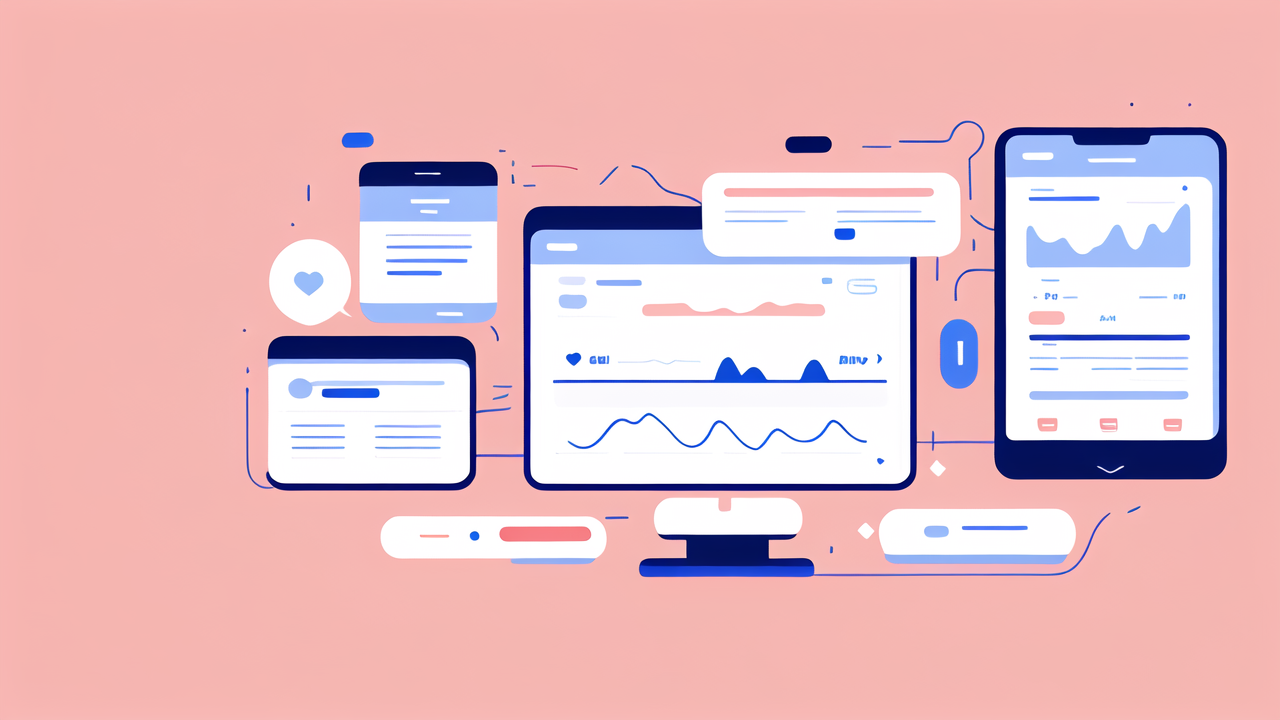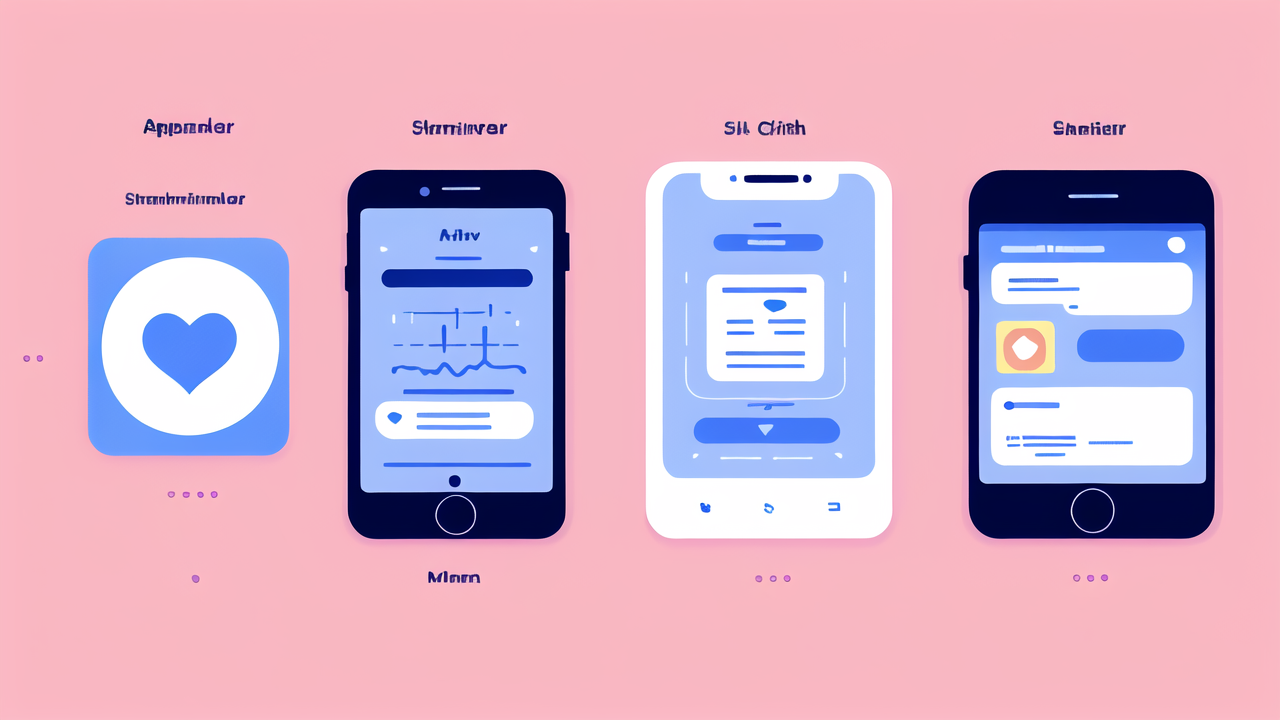The Rise of Smartwatches in Healthcare: Trends and Applications
The Evolution of Smartwatch Technology
Smartwatches have come a long way since their inception. They started as simple fitness trackers. Now, they're powerful health monitoring devices. Early models could only count steps and track sleep. Today's smartwatches can measure heart rate, blood oxygen levels, and even detect falls.

The technology keeps improving. Newer models can take ECG readings and monitor blood pressure. Some can even detect irregular heart rhythms. This rapid evolution has made smartwatches valuable tools in healthcare. They provide real-time health data to users and doctors alike.
As the technology advances, we can expect even more features. Future smartwatches might be able to measure blood glucose levels non-invasively. They could potentially detect early signs of diseases like Parkinson's or Alzheimer's.
Integration with Healthcare Systems
Smartwatches are becoming more integrated with healthcare systems. Many hospitals now allow patients to share their smartwatch data with doctors. This gives healthcare providers a more complete picture of a patient's health.
Electronic Health Records (EHRs) are starting to include data from smartwatches. This integration helps doctors make more informed decisions. It also allows for better tracking of chronic conditions.
Some insurance companies are even offering incentives for using smartwatches. They see the potential for these devices to improve overall health outcomes. This integration is still in its early stages, but it's growing rapidly.
The Role of Smartwatches in Telemedicine
Telemedicine has seen a huge boost in recent years. Smartwatches play a crucial role in this trend. They allow patients to share vital signs with doctors during virtual visits. This makes remote consultations more effective.
Smartwatches can also help with remote patient monitoring. Doctors can track patients' health data over time. This is especially useful for managing chronic conditions. It allows for early intervention if problems arise.
Some smartwatches now offer features specifically designed for telemedicine. These include medication reminders and symptom tracking. As telemedicine grows, smartwatches will likely become even more important.
Regulatory Considerations for Smartwatches in Healthcare
FDA Regulations and Patient Safety
The FDA has taken notice of the growing use of smartwatches in healthcare. They've issued guidelines for these devices. The main concern is ensuring patient safety and device accuracy.

Not all smartwatch features need FDA approval. Basic fitness tracking doesn't require it. But more advanced health features do. For example, ECG functions need FDA clearance before they can be marketed.
The FDA is working on creating a framework for regulating AI in healthcare devices. This will affect smartwatches that use AI for health predictions. The goal is to ensure these predictions are accurate and safe.
Health Insurance Portability and Accountability Act (HIPAA)
HIPAA is a major concern when it comes to smartwatches in healthcare. The law protects patients' health information. Smartwatch companies must ensure they comply with HIPAA regulations.
This means implementing strong data security measures. It also means getting patient consent before sharing data with healthcare providers. Some smartwatch companies are partnering with HIPAA-compliant platforms to handle health data.
There's ongoing debate about whether all smartwatch data falls under HIPAA. The line between fitness data and health data isn't always clear. This is an area where regulations are still evolving.
Impact on Healthcare Data Integrity
Smartwatches generate a lot of health data. This can be both good and bad for healthcare data integrity. On one hand, more data can lead to better insights. On the other, it can be overwhelming for healthcare providers.
There are concerns about the accuracy of smartwatch data. Different devices may give different readings. This can make it hard for doctors to rely on this data. Standardization efforts are underway to address this issue.
Another concern is data overload. Doctors may struggle to sift through all the data smartwatches provide. AI and machine learning tools are being developed to help with this. They can highlight important trends and anomalies in the data.
Case Studies and Success Stories
Innovative Healthcare Smartwatch Applications
Several companies are pushing the boundaries of what smartwatches can do in healthcare. Apple's ECG feature has already helped detect atrial fibrillation in many users. This has potentially saved lives by alerting people to seek medical attention.

Fitbit is working on using its devices to detect sleep apnea. This common but often undiagnosed condition can have serious health impacts. Early detection through smartwatches could lead to better treatment outcomes.
Samsung is developing a blood pressure monitoring feature for its smartwatches. This could be a game-changer for managing hypertension. It would allow for more frequent monitoring than traditional methods.
Overcoming Challenges: From Wearables to Health Records
Integrating smartwatch data into health records has been challenging. But there are success stories. Stanford Medicine has been a pioneer in this area. They've successfully integrated Apple Watch data into their EHR system.
This integration allows doctors to see patients' activity levels, heart rate, and other data. It's helped with managing conditions like diabetes and heart disease. Patients report feeling more engaged in their health care as a result.
Mayo Clinic has also made strides in this area. They've developed an app that integrates smartwatch data with their patient portal. This allows patients to easily share their health data with their doctors.
Future Outlook: Evolving Consumer Expectations and Healthcare Trends
Consumer expectations for smartwatches are evolving. People want more health features and better integration with healthcare systems. This is driving innovation in the smartwatch industry.
We can expect to see more advanced health monitoring features in the future. Non-invasive glucose monitoring is a holy grail that many companies are working towards. Mental health monitoring is another area of focus.
The trend towards personalized medicine will likely accelerate with smartwatch use. These devices provide a wealth of individual health data. This could lead to more tailored treatment plans and better health outcomes.
Smartwatches are set to play a bigger role in preventive healthcare. They can help detect health issues early. They can also encourage healthy behaviors through reminders and gamification.
As technology advances, smartwatches may become indispensable tools in healthcare. They're already changing how we monitor and manage our health. The future looks bright for these small but powerful devices.




Leave a comment
This site is protected by hCaptcha and the hCaptcha Privacy Policy and Terms of Service apply.